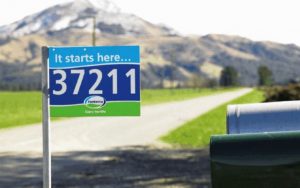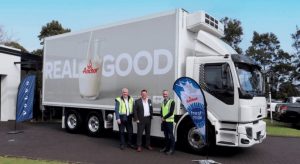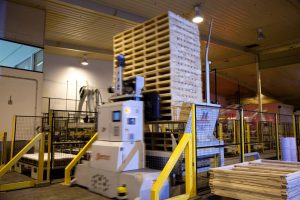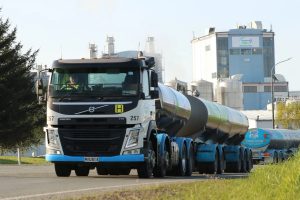
New Zealand dairy’s history shows the industry’s enduring ability to take challenges and turn it into opportunity.
The challenge of distance from the market led to refrigeration of butter. Excess skim milk led to a long list of product innovations in protein. Milk perishability led to the world leading development of whole milk powder, enabling us to access markets around the world not capable of producing milk.
At its core, NZ dairy has a unique natural selling point that is almost impossible to replicate. It’s that very “New Zealandness” that’s helped lift the Farmgate Milk Price, even during a global pandemic, and it’s the crux of Fonterra’s strategy.
Looking ahead, the demand for natural, grass-fed dairy as a premium source of nutrition is likely to strengthen. Today our customers are increasingly looking to use our grass-fed, low-carbon milk to help them bolster their sustainability credentials.
Perhaps the greatest challenge our industry faces today is ensuring we support our farmers to keep up with the pace of change and impacts on their business that consumers are demanding.
Fonterra adds real value through ensuring a coordinated and considered approach is taken in meeting these changing needs of customers and consumers with respect to sustainability and animal wellbeing.
Within Fonterra, we’ve introduced The Co-operative Difference Payment. We’re now paying farmers for producing milk that’s more sustainably produced. We’re ultimately recognising farmers who invest and innovate to produce dairy with world-leading sustainability credentials.
We’re continuously looking for ways in which to utilise the data we collect from our farmers to meet regulatory and market access requirements and, most importantly, add value to our products in-market. Through this data we’re able to provide much-needed proof points to our customers of the care our farmers take for the environment and their animals.
We’re also innovating to ensure our farmers extract value from the time and effort they put into collecting and recording data.
Last year we released personalised Farm Insights Reports giving our farmers information on their milk, animal and environmental performance. The reports include farm specific greenhouse gas data, heat stress indicators, milk shed efficiency and farm performance under the Co-operative Difference Programme.
Our field teams, collaborating with the wider rural professional community, are then able to work alongside farmers and their reports to help farmers achieve their on-farm goals.
Fonterra’s Farm Environment Plans (FEP), a key component in The Co-operative Difference, are helping farmers to assess how their farm is performing relative to good practice and provides practical actions to improve their environmental performance and reduce risk.
Our 40 Sustainable Dairying Advisors work with farmers to create FEPs at no extra cost. Today 60% of our farms have one and by 2025 that will be up to 100%.
The strengths of Fonterra Co-operative – scale, influence, innovation, profitability and sustainability – help farmers meet these challenges and ensure they’re better off both now and into the future.
But the challenges facing dairy farming, and indeed farming more broadly in NZ, aren’t ours alone.
Now more than ever, close and collaborative relationships across the primary sector, with iwi and government are critical to ensuring this pace of change is managed through world-class support services for our farmers.
We need to provide clarity of future requirements and allow time for on-farm innovation. As a sector, continued investment in innovation and technology are critical to keeping our farmers ahead of the pack. He Waka Eke Noa (HWEN), the climate action partnership, is a great example of this type of collaboration.
It’s important farmers participate in the discussions currently being led by DairyNZ and Beef+Lamb NZ on behalf of HWEN. Comprehensive farmer feedback on the options for a suitable and credible alternative to the Emissions Trading Scheme is critical.
The world is changing and, with it, the expectations of our communities here in New Zealand and our consumers across the world – this has always been the case and will continue to be. Through innovation and, importantly, collaboration we can keep turning challenges into opportunities for our industry.

























